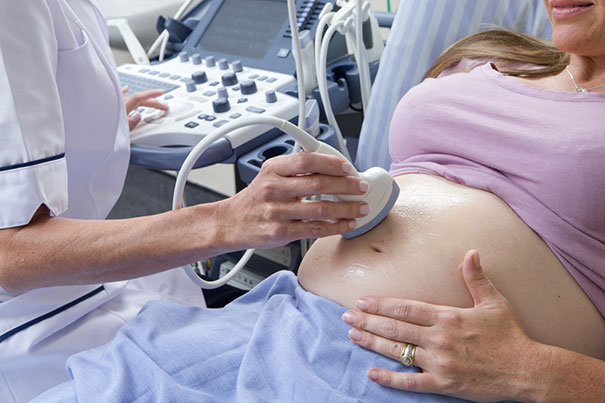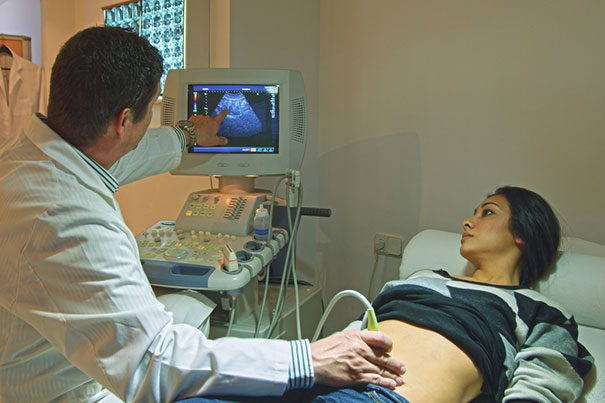
Toxoplasmosis in Pregnancy: Symptoms and Treatment
Toxoplasmosis is common infection that can be transmitted via things like cat faeces and uncooked meat. In pregnancy it can lead to potentially serious complications, but luckily there are steps you can take to avoid it. Learn about the symptoms of toxoplasmosis, what you can do to help prevent it, and how it’s treated during pregnancy.
What Is Toxoplasmosis?
Toxoplasmosis is an infection caused by a parasite called Toxoplasma gondii (T gondii for short). It’s usually carried by cats, although some other animals may also become infected with it. It can be transmitted through cat poo, among other things.
It’s usually harmless, and may not even cause any noticeable symptoms, but if you get it for the first time during pregnancy there’s a chance it could harm your foetus or cause health problems and/or learning difficulties for your baby after he or she is born.
Keep in mind, becoming infected during pregnancy is rare, and even if it happens there is a chance the toxoplasmosis won’t pass to your foetus.
Still, because the complications are potentially serious, it’s important to take steps to avoid possible sources of Toxoplasma gondii while you’re pregnant and get tested as soon as possible – in case you need treatment – if you think you may have been infected or exposed to T gondii.
How Is Toxoplasmosis Transmitted?
Toxoplasmosis is caused by contact with the Toxoplasma gondii parasite. There are several ways this parasite can be passed to humans. Potential sources of toxoplasmosis infection include:
Toxoplasmosis Symptoms
Most people who have toxoplasmosis – in pregnancy or at any other time – don’t have any symptoms at all. In fact, you may have already had it in the past, and simply didn’t notice at the time.
Some people, on the other hand, may experience toxoplasmosis symptoms that are similar to that of the flu or glandular fever, including:
These symptoms usually clear up by themselves within about six weeks.
Luckily, although toxoplasmosis is a common infection, you can only get it once. After having it, most people with a healthy immune system have lifelong protection from the disease.
This is another reason why the chances of your contracting it during pregnancy are considered to be quite low.
When to Ask for a Toxoplasmosis Test
Mums-to-be aren’t routinely screened for toxoplasmosis, but it can be detected in a sample of your blood.
If you’re pregnant (or may get pregnant soon) and you’re worried about toxoplasmosis – especially if you think you may have been exposed to the Toxoplasma gondii parasite recently or think you may have the symptoms of an infection – you can ask your midwife or doctor about having a blood test.
If that blood test shows a recent infection, you may be given additional tests to see if your little one could be affected and determine if any treatment is needed.
Keep in mind that even if you do get infected with toxoplasmosis for the first time during your pregnancy, the infection doesn’t always spread to your embryo or foetus. However, it’s best to get treatment as soon as possible to lower the risk of complications.
It’s also important to know whether there’s a chance of your little one being infected with toxoplasmosis so that he or she can be monitored (and treated if necessary) for any health problems after being born.
Toxoplasmosis Treatment
In healthy individuals, toxoplasmosis usually clears up by itself without any treatment. However, if you are diagnosed with toxoplasmosis in pregnancy, your doctor may prescribe antibiotics to reduce the risk of complications.
The likelihood and severity of any complications for your embryo or foetus can depend on when you get infected, so this might also affect the kind of treatment you are given.
Generally speaking, if you get toxoplasmosis in the first trimester (or just a few weeks before becoming pregnant), there’s less chance of the infection spreading to your little one. In this case, however, the complications may be more serious.
If you’re infected later in pregnancy there’s a greater chance of your foetus also being infected, but the complications are usually less severe if this does happen.
Preventing Toxoplasmosis in Pregnancy
The chances of you contracting toxoplasmosis while you’re pregnant are relatively low, but to avoid complications it’s worth taking steps to keep the risk as low as possible.
Here are a few ways to avoid exposure to the Toxoplasma gondii parasite that causes toxoplasmosis, especially if you’re a cat owner:
For more on this topic, read more about what foods and drinks to avoid during pregnancy.
FREQUENTLY ASKED QUESTIONS
- Fever
- Aching muscles
- Tiredness
- Nausea
- Sore throat
- Swollen glands.
The Bottom Line
Toxoplasmosis is a potentially serious condition for you and your little one, but there are steps you can take to avoid contact with the Toxoplasma gondii parasite, and a simple blood test can help put your mind at ease if you suspect you may have been exposed.
Early detection is important, so be sure to speak to your midwife or doctor if you have any questions or concerns.
- NHS: Toxoplasmosis
- NHS: What are the risks of toxoplasmosis during pregnancy?
- NHS: Toxoplasma
- NHS: What is Toxoplasmosis?
- NHS: Foods to avoid in pregnancy
- NHS: Why should pregnant women avoid sheep during the lambing season?
- NHS: Investigation of Toxoplasma Infection in Pregnancy
- NHS: Why shouldn't I change cat litter during pregnancy?
Read more about Pregnancy
Related Articles
Join Pampers Club and get:














